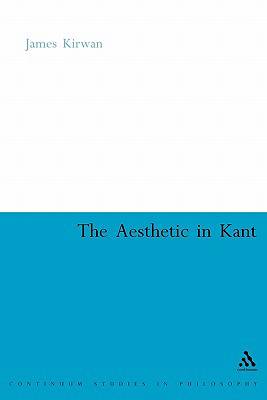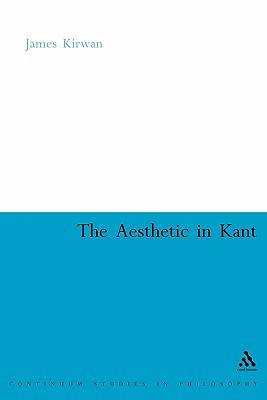
- Afhalen na 1 uur in een winkel met voorraad
- Gratis thuislevering in België vanaf € 30
- Ruim aanbod met 7 miljoen producten
- Afhalen na 1 uur in een winkel met voorraad
- Gratis thuislevering in België vanaf € 30
- Ruim aanbod met 7 miljoen producten
Zoeken
€ 186,95
+ 373 punten
Omschrijving
Kant's Critique of the Power of Judgment is widely held to be the seminal work of modern aesthetics. In recent years it has been the focus of intense interest and debate not only in philosophy but also in literary theory and all disciplines concerned with the aesthetic. The Aesthetic in Kant is a new reading of Kant's problematic text. It draws upon the great volume of recent philosophical work on this classic text and on the context of eighteenth century aesthetics. Kant's work is used as a basis on which to construct a radical alternative to the antinomy of taste - the basic problem of the aesthetic. In Kant's account is a theory of the aesthetic that, far from establishing its 'disinterested' nature, instead makes it symptomatic of what Kant himself describes as the ineradicable human tendency to entertain 'fantastic desires'.
Specificaties
Betrokkenen
- Auteur(s):
- Uitgeverij:
Inhoud
- Aantal bladzijden:
- 210
- Taal:
- Engels
- Reeks:
- Reeksnummer:
- nr. 1
Eigenschappen
- Productcode (EAN):
- 9780826487780
- Verschijningsdatum:
- 24/03/2006
- Uitvoering:
- Paperback
- Formaat:
- Trade paperback (VS)
- Afmetingen:
- 159 mm x 234 mm
- Gewicht:
- 322 g

Alleen bij Standaard Boekhandel
+ 373 punten op je klantenkaart van Standaard Boekhandel
Beoordelingen
We publiceren alleen reviews die voldoen aan de voorwaarden voor reviews. Bekijk onze voorwaarden voor reviews.








